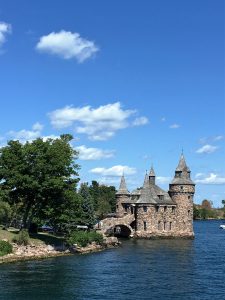 Psalm 9:3-12
Psalm 9:3-12
Last night Sharon and I attended an informational meeting about Social Security. The presenter went over recent changes and how they can affect a person’s financial strategy. But a couple times he mentioned that changes can be made to the system at any time by Congress. The old adage that goes something like this came to mind: “Past performance is no indicator of future returns.” With that in my mind, I thought about if and how that saying applies to the truth of our Lord’s reign over our broken world.
In one sense it is definitely not true, because many times in the Bible God assures us that what he has done for his people in the past, he is surely able to do, and will ultimately do, to rescue us from the brokenness of our world. However, in another sense it is true, because we cannot expect our sovereign God to act in our lives in exactly the same way that he acted in David’s life, or in the lives of many others. Some misuse the narrative portions of the Scriptures as guarantees that God will do the same for us, “if we have faith”. That is false teaching and clearly not supported by the God’s word. The Lord delivers some, while others he helps to endure severe suffering. (Read carefully Hebrews 11:32-38). For example, though Elijah prayed and God ended the drought does not mean that you or I can pray and God will end droughts. Elijah acted in faith on the orders that God gave him, and not on his own desires. With that in mind, let’s think about what God did for David and his kingdom, as God pursued his plan of sending the Messiah.
- David thanked God for acting for his deliverance (9:3-4). Notice how David presented God as the powerful Judge. David’s enemies had to retreat, because they could not stand in God’s presence. The Lord is honored for the righteousness of his rescue of his chosen king. God was faithful to the promises he had made to bring the Messiah, Jesus, through his line. This required deliverance for David. His thankfulness echoes down to our day and into eternity.
- David acknowledged the doom that fell upon the nations (9:5-8). We must recognize the justice of the Lord’s act of judgment on them. They chose to walk away from the true God to follow idols, and God acted to punish them for their rebellion and rejection of him. Since God is holy, sin must be punished, either on the sinner or the substitute, Jesus Christ. They opposed God’s chosen king, and so they suffered the consequences. As David sang about God’s judgment, he leads us to think about how extensive and lasting God’s justice is. He contrasted the end of the wicked nations with God’s enduring throne, and he stressed the rightness of God’s justice.
- David celebrated the happy condition of God’s people (9:9-10). The rebellious nations met their doom, but God never abandons those who belong to him. Observe four characteristics of those who belong to God: they are people who need refuge, who know God’s name (who he is), who trust him, and who seek him. They might be in a situation where they are presently oppressed. David was in such circumstances many times. But the Lord God never abandons his own.
- David called worshipers to join in mission with him (9:11-12). He led those singing this psalm to praise God and to tell the nations what the Lord had done for them. As we noted in our last article, in our day we are to tell the world the good news of what Christ has done to save those who turn from their sins and trust in him for eternal life. We are responsible to spread the word about salvation.
So then, David leads us to worship the God in charge of this broken world. We need this big picture, because at times all we might see and think about is the pain and sorrow of brokenness. Perhaps you are in a rough situation today, or you might have family and friends that are. If so, look at an enduring reason for hope: the sovereign God rules over the nations. He will bring all his people to the refuge they need.
Grace and peace, David
